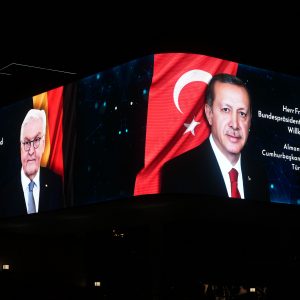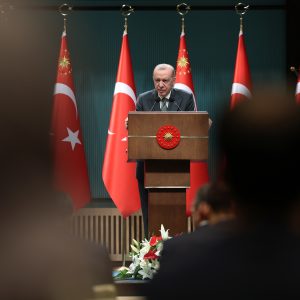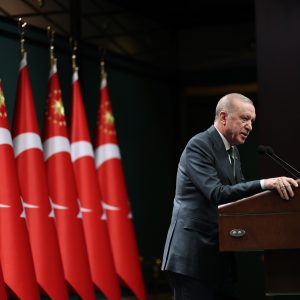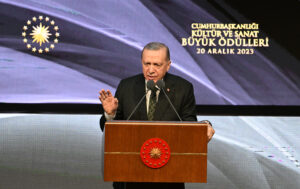UN rights chief calls for immediate action against desecration of religious places, symbols
GENEVA (AA) – The UN human rights chief on Thursday called for immediate action against the rising incidents of the desecration of religious places and symbols worldwide.
“Human Rights Council resolution 53/1 noted with deep concern the rising incidents of desecration of places of worship and religious symbols across the world, calling for immediate action to address it,” Volker Turk, the UN high commissioner for human rights, said in his verbal update on drivers, root causes and human rights impacts of religious hatred during UN Human Rights Council in Geneva.
He pointed out that publicly staged burnings of Quran have persisted in some countries since the council’s urgent debate in July.
“I want to emphasize once again that I strongly reject these disrespectful and offensive acts, especially those which have the clear aim to provoke violence and stir division.”
He underlined that such acts that deeply impact millions of individuals are cutting to the core of their identity and values.
To address this problem, Turk said a broad consultation process will be facilitated with states and stakeholders.
He added: “I hope this process will ultimately provide a blueprint for countries to adopt legal and law enforcement frameworks and robust policies to counter the scourge of religious hatred – in line with international human rights law – and to act swiftly to ensure accountability.”
The UN rights chief also said that he expects to delve more deeply into these issues during the next two sessions of the council, including the presentation of his office’s report next June.
Gaps in national policies and legal frameworks allow hatred and discrimination to slip through the cracks in the face of real consequences, Turk said.
“Member states can and must do more,” he urged, as incidents of religious hatred around the world demonstrate that fighting the root causes and drivers of hate requires “much more.”
An active dismantling of harmful stereotypes, public information campaigns celebrating diversity, inclusive and non-discriminatory education systems, social media platforms with content moderation policies that respect human rights, a strong, independent, and diverse media, and remedies for those who experience discrimination are needed to address religious hatred and its effects, he said.
Turk emphasized that overcoming religious hatred will require a “renewed social contract based on trust and respect.”











